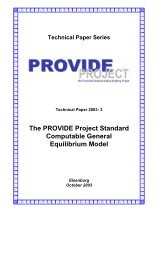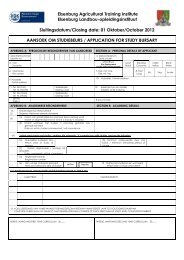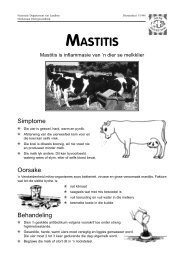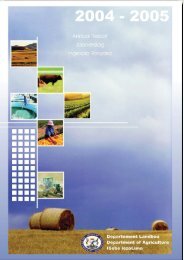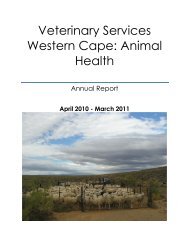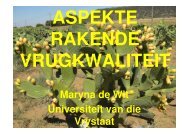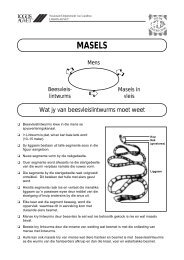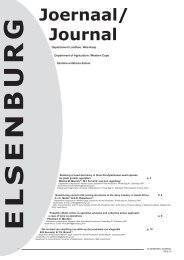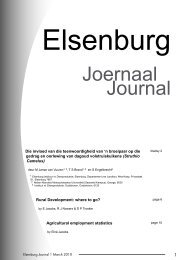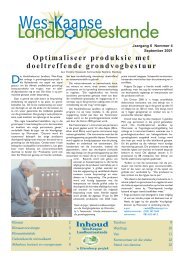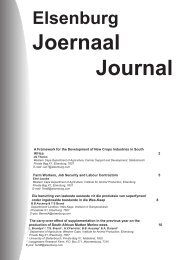honey bush tea - Department of Agriculture: Western Cape
honey bush tea - Department of Agriculture: Western Cape
honey bush tea - Department of Agriculture: Western Cape
Create successful ePaper yourself
Turn your PDF publications into a flip-book with our unique Google optimized e-Paper software.
2.2 Consumption per Product Category and Opportunities<br />
The consumer trend towards health and convenience is underlined by the ongoing rise<br />
<strong>of</strong> herbal products that led to new terminologies and or segments such as<br />
nutraceuticals, enriched, energised etc. Consumers appear to be turning to more<br />
flavoursome or healthy alternatives consumption <strong>of</strong> which increased by almost 50 per<br />
cent between 1997 and 2002. These trends are observed in various industries that use<br />
herbal products in different applications and in different forms and these will be<br />
highlighted in this section.<br />
2.2.1 Instant <strong>tea</strong>s<br />
In 1997, British consumers bought 127 million kilograms <strong>of</strong> normal <strong>tea</strong>bags, but by<br />
2002, consumption had decreased to 114 million. But c<strong>of</strong>fee, perhaps the most natural<br />
alternative to <strong>tea</strong>, is not filling the gap either as instant c<strong>of</strong>fee sales are falling, and even<br />
sales <strong>of</strong> ground c<strong>of</strong>fee fell in 2002. Nevertheless, Britain is not the only country where<br />
hot beverage consumption is undergoing something <strong>of</strong> a revolution.<br />
Instant <strong>tea</strong> sales all over the world appear to be in decline according to Datamonitor.<br />
One exception, however, is decaffeinated <strong>tea</strong> sales which fell even faster than regulars.<br />
According to Datamonitor, 2003 “it's more about image, as a stereotypical decaf drinker<br />
is perceived as a recovering caffeine addict, while a stereotypical flavoured <strong>tea</strong> drinker<br />
is perceived as 'stable', 'modern' and 'with it”. Convenience, which is one <strong>of</strong> the<br />
assumed trends behind instant <strong>tea</strong> consumption, is also playing a less important role in<br />
this category.<br />
Also in Japan for example, where instant <strong>tea</strong> has long been popular, sales dropped<br />
severely by over 6 per cent a year between 1997 and 2002 (Datamonitor, 2003).<br />
However, consumers may have shown some resistance to instant <strong>tea</strong>s in the past,<br />
mainly because <strong>of</strong> their inferior taste and aroma. Marketers believe that Instant<br />
Rooibos and Honey<strong>bush</strong> products could change all this by capturing the enigmatic taste<br />
and flavour so characteristic <strong>of</strong> these two South African brews (Snyman, 2000). In other<br />
words, this means an opportunity for <strong>honey</strong><strong>bush</strong> to be used in blending as it can give<br />
beverages a unique taste and flavour.<br />
10



